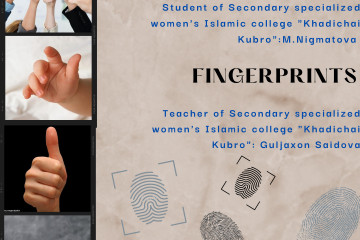
Mutashabih adjectives and predecessors
The names and attributes of Allah were first studied deeply by the scholars of the Aqeedah among the Muslims.
The aim of all the scholars of the Aqeedah, both old and new, as well as their predecessors and successors, was to purify Allah from unworthy attributes.
It is well known that the Salafis had a high level of knowledge of the Arabic language and religious beliefs. Moreover, in their time there were no various conflicts, sects, philosophies, although they were weak and ineffective.
Therefore, they did not need different attempts in the science of aqeedah, as in other sciences.
Imam Abu Haneefah (may Allaah have mercy on him) said in his book Al-Fiqh al-Akbar: He is like none of His creatures. He is like none of His creatures.All of His attributes are contrary to the qualities of creatures. He knows with knowledge unlike ours. He will be able to do it with a power unlike ours. He sees with a vision unlike ours. If Allah mentions the face, hands and nafs in the Qur'an, they are attributes that are not pleasing to Him.
Imam Bukhari's sheikh Nuaym ibn Hammad al-Khuza'i said: “Whoever likens Allah to His creatures has indeed become a disbeliever. And whoever disbelieves in what Allah has described, then he is a disbeliever. There is no analogy in what Allah and His Messenger describe Him.Whoever confirms what is revealed in clear verses and authentic messages for the sake of Allah and deserves to be reprimanded by Allah, then he is on the path of guidance. As we have already mentioned, in this sense, too, the Salaf, that is, the way of the previous Muslim generations and the scholars, was to accept for themselves what they had, and not to think about anything else.This issue is known as the issue of "ascension to the Throne", because in the verses on this subject, the combination "'alal Arshi-stava" is used in reference to Allah. If we translate the text literally, it means that "Allah is equal to the Throne." It has been agreed between past generations that we refer this meaning to Allah Himself and do not talk about it. Because at that time everyone had a good understanding, lived a simple life and they were not exposed to various conspiracies. However, some individuals have been found to raise this issue. But many called them ‘conspirators’ and did not allow them to spread their ideas. At the same time, the Muslim masses were living in peace.
Umar ibn Khattab (may Allaah be pleased with him) had similar savings. Here is just one example. Imam al-Darimi and others narrated from 'Umar ibn Khattab that Mawlawi said: When he arrived in Egypt, 'Amr ibn' Ass sent him to 'Umar ibn Khattab. The courier had brought the letter, read it, and asked, "Where is this man?" he said. “With cargo,” he said. “Fast ball! If he leaves, you will have a painful retribution! ” he said.
He brought it. 'Umar said to him, "What are you asking about?" he said. He told me. 'Umar sent for me, asking for a palm branch. With that he struck her on the back and wounded her. He then released her and struck her again after she recovered. He then released her and struck her again after she recovered. Then he came to shave her to hit her again. He said, “O Commander of the Faithful, if you want to kill me, kill me beautifully. If you want to heal, I swear by Allah, I have recovered”.
He allowed him to return to his homeland and wrote a letter to Abu Musa al-Ash'ari saying, "No Muslim should sit with him." It was extremely difficult for this man. Abu Musa wrote to 'Umar, "He is well." "Let the people sit with him," he wrote.
This man was Banu Tamil Subayg ibn Asal, who tried to make a controversial point out of some verses in the Qur'an. After the measure taken by Hadrat 'Umar, he came to a hundred people, but all of them dispersed. He used to be a sayyid, a leader in his people. After that, humiliation and humiliation became difficult.
The position of Imam Malik (as) in this regard was also praised by all. It is narrated that a man came to Imam Malik (ra) and asked him about istiva. Imam Malik said, "Istiva is known. It is unknown at this time what he will do. It is obligatory to believe in him. It is heresy to ask questions about him. You are a heretic! Get it out of my sight! ' they said.
In this way, our pious Salafis maintained the correct belief in the purity, uniqueness and all other qualities of perfection of Allah subhanahu wa ta'ala.
The student of the 3rd course of the secondary special education institution under the name of Khadichai Kubro Vakhabova Madina
Другие новости

 УЗ
УЗ
 РУ
РУ
 EN
EN
 العربية
العربية
